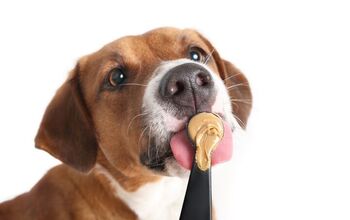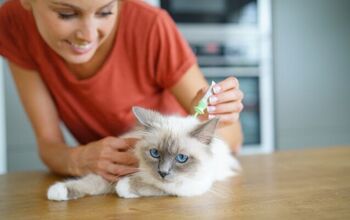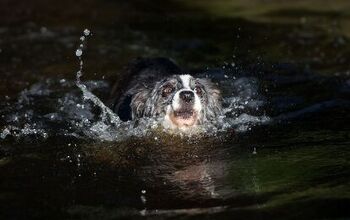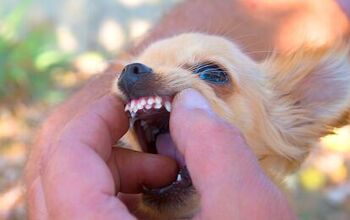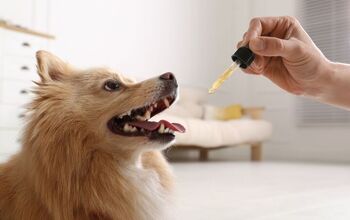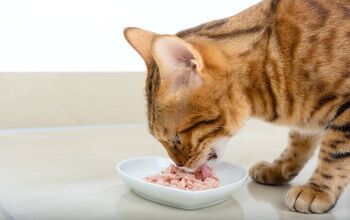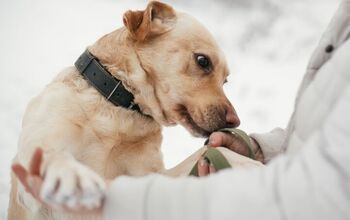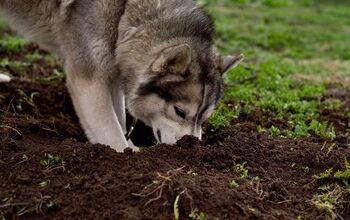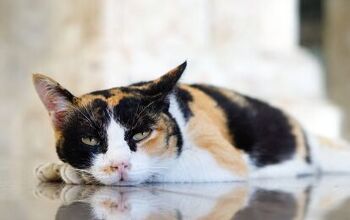Toy Rat Doxie


About Toy Rat Doxie
You’ll never be bored with a Toy Rat Doxie by your side! These unique and adorable designer dogs were developed by crossing the short-legged Dachshund with the spunky Rat Terrier. The combo of two small dogs makes for a feisty, lively and amusing canine companion that does great with singles and families alike.
The Toy Rat Doxie is a loyal, affectionate dog that bonds strongly with his owner. Although they have a strong prey drive and can have a mischievous behavior at times, they are couch potatoes at heart. These petite pooches love nothing better than to cozy up to their owners and get some ear scratches before they take a nap. If you think that this one-of-a-kind mix of laziness and animation, as well as sweetness and mischief, would perfectly suit you, read on to find out more about the Toy Rat Doxie!
The Toy Rat Doxie is a loyal, affectionate dog that bonds strongly with his owner.
The origin of all designer dog breeds is somewhat mysterious. For a lot of people, it’s still unclear what makes a designer dog and which mixed breed pooches are good old-fashioned mutts. (Hint: adorable mutts usually have a much more colorful family tree that includes more than two breeds, whereas hybrids are offspring of two purebreds). In general, the majority of what we today know as hybrids or designer dogs, has been developed sometime in the last 20 to 30 years, in the United States.
The same goes for the Toy Rat Doxie. This Rat Terrier and Dachshund mix was probably first created in hopes that it will have fewer health issues and present improved qualities of the parental breeds. And, it seems that these hybrids have managed to do it both!
If you think about pedigree in terms of official papers, you shouldn’t expect your Toy Rat Doxie puppy to have any. The American Kennel Club registers only purebred dogs, and hybrids and designer dogs don’t fall under that category. Therefore, these mixed breed canines won’t be eligible for official certification that offers proof of their lineage.
However, pedigree is much more than just a piece of paper. The family tree of the Toy Rat Doxie consists of two well-known, well-loved breeds- the Dachshund and the Rat Terrier. The Doxie or the Wiener Dog can trace its origins to hundreds of years ago, where it had its starts as a hunting companion in Germany. In the 1800s, the breed evolved to become a family pet, a role it still has today. Similarly, the Rat Terrier was also initially a hunter, but in this case, it wasn’t badgers or foxes that were the prey, but rather- rats. No farm in England during the 19th century could go without a Rat Terrier to help catch the vermin. While both of the breeds are now purely companions, their hunter genes still show generations after.
Although it’s highly likely that your Toy Rat Doxie pet wouldn’t say no to anything you offer them to eat, it doesn’t mean that their greedy appetite should be your guide. Dogs are omnivores, and most of them have no real standards when it comes to their food, so it can be hard to narrow down the list to items that they actually should and need to eat. Fortunately, even if you’re a newbie dog owner, it won’t take much to get the hang of it. For a Toy Rat Doxie, premium dry food for dogs is the best choice. Pick out any high-quality kibble that’s suited for your pet’s age (puppy, adult, senior), size (small), and activity level (low to moderate).
As a small breed dog, the Toy Rat Doxie is prone to obesity. Gaining even a little extra weight can quickly put a strain on their petite frame, so make sure to avoid overindulging your pet. This means to table scraps, no excessive treats, and no large portions. Follow the feeding guide recommendations for your pet’s unique needs- most brands have it printed out on the back of the kibble bag.
As a small breed dog, the Toy Rat Doxie is prone to obesity.
The Toy Rat Doxie is one smart pooch. These dogs have bright, active minds, but if they’re not engaged at all times, they can quickly become very mischievous to occupy themselves. To steer your pup away from trouble, and make sure they behave well, you need to give them basic training. Fortunately, as this designer dog is a quick learner, you shouldn’t have any problem teaching them commands and correcting their behavior. The trick is to use positive reinforcement methods to train them- after all, what could be more motivating than treats and praise? Even if your puppy turns out to have a bit of a stubborn streak (owing to that terrier ancestry), a bit of coaxing is sure to change their mind about learning.
In addition to elementary things, such as housebreaking and learning how to walk on a leash, you should spend time socializing your pet. The Toy Rat Doxie has a lovely, friendly personality, but if not socialized on time, he or she might not be as amiable towards strangers, young kids, or other pets.
While not prone to any serious breed-specific behavior issues, the Toy Rat Doxie can have a high prey drive and the tendency to bark a lot. Luckily, both of these issues- if present- can be successfully corrected with training and socialization.
When you have a first generation hybrid, which is the offspring of two different purebred dogs, all bets are off. You never know if the puppies will favor one parent over the other, or inherit traits from both in a balanced ratio. Of course, the same goes true for the Toy Rat Doxie. However, both the Dachshund and the Rat Terrier are similar, size-wise, so there are no dramatic variations in weight with these dogs. On average, a fully grown Doxie and Rat Terrier mix should weigh between 10 to 30 pounds. This leaves room for variety, but all well within the limits of small dog category.
If you want a small dog with a big personality, you’ll quickly fall in love with the feisty Toy Rat Doxie. Owing to its parental breeds, this designer dog has a fun, lively, friendly temperament. No matter where they are, these hybrids find a way to be in the center of the attention! In addition to being a natural charmer, the Dachshund and Rat Terrier mix is very affectionate, as well. These pooches are cuddly and sweet with their family members but tend to form a special bond with one special human. Their devotion and loyalty truly make them worthy of the title ‘man’s best friend’.
Of course, not everything about Toy Rat Doxie is perfect (although their owners will probably claim otherwise). Like all dogs, these cute hybrids can have a few quirks and traits that are not all that ideal. For instance, due to their hunting genes, they have a strong prey drive and can chase and try to attack other pets and animals that are smaller than them. Additionally, the Toy Rat Doxie can be prone to separation anxiety. As they tend to bond closely to their family members, they can get nervous if they need to be alone at home. Fortunately, these issues can be worked on and corrected with training.
When it comes to designer dogs, opinions are divided. Some believe that, because of ‘hybrid vigor’ principle, these canines have far fewer health issues than their purebred parents. Others, seeing sick and neglected pets that come out of puppy mills, tend to think that designer dogs are ridden with disease. In reality, the truth is neither here nor there- but somewhere in the middle. Hybrids, like all other dogs, can win on the genetic lottery and have no major congenital issues, or inherit a condition from one of their parents.
The Toy Rat Doxie is prone to several health problems that are common for its parents. These include intervertebral disc disease, hip and elbow dysplasia, kneecap dislocation ( patellar luxation) and progressive retinal atrophy. Additionally, these petite pooches can be prone to early teeth loss- so make sure to be vigorous about their oral hygiene.
As a small breed dog with relatively good health, the life expectancy for the Toy Rat Doxie is optimistic. With proper care, they can live between 15 to 18 years.
When they see a small dog, most people assume that they’re lazy and very low-maintenance when it comes to exercise. While this can be true, it’s not always the case. For instance, the Toy Rat Doxie has parents who both started out as hunting dogs, which does give them a spirited nature. Of course, even being slightly more energetic than your average lap dog, these hybrids are still not high-maintenance in terms of their activity needs.
For most Toy Rat Doxie dogs, 30 to 60 minutes of daily exercise will keep them healthy and happy. Take them on a few brisk walks, or play fetch with them in a securely fenced backyard. As long as their active minds are engaged during playtime, too, you can easily tire out your new puppy.
While not prone to any serious breed-specific behavior issues, the Toy Rat Doxie can have a high prey drive and the tendency to bark a lot.
Traditional canine clubs and organizations, such as the AKC, don’t recognize designer dogs as “real” breeds. However, there are plenty of hybrid enthusiasts, that have been working on bettering the standards for designer dogs and their breeders for decades. Those of them that also recognize the Toy Rat Doxie include the American Canine Hybrid Club, Designer Breed Registry, Dog Registry of America, and International Designer Canine Registry.
While there are 3 different types of Dachshund, the type that’s part of the Toy Rat Doxie’s ancestry is the standard, short-haired Wiener Dog. When combined with the short coat of the Rat Terrier, there’s no room for doubt about their offspring’s fur. These hybrids sport a closely cropped coat, shiny and silky to touch. It is also low-maintenance when it comes to grooming: brushing these dogs once or twice a week will keep their hair in perfect form.
As for the possible colors, there are numerous possibilities and combinations. From bi-colored coats to spotted and mono-colored hair, these pooches definitely offer variety.
The only thing more mischievous and cuter than the adult Toy Rat Doxie is its puppy version. In their young age, these dogs are very energetic and active and will spend most of their puppyhood sniffing stuff, exploring every nook and cranny of your home, and getting into trouble. Luckily, with basic training and socialization, their “delinquent” tendencies just become adorable playful behavior you’ll learn to love.
As they’re not demanding, neither with their activity needs or grooming, and they have a pleasant, friendly personality, these designer dogs can fit in with families of all shapes and sizes. The Toy Rat Doxie makes a great companion for a single or a senior but can be a good family pet for older children, too.
Photo credit: Cora_Dawn/Shutterstock; Susan Schmitz/Shutterstock; Sharon Day/Shutterstock

A proud mama to seven dogs and ten cats, Angela spends her days writing for her fellow pet parents and pampering her furballs, all of whom are rescues. When she's not gushing over her adorable cats or playing with her dogs, she can be found curled up with a good fantasy book.
More by Angela Vuckovic










